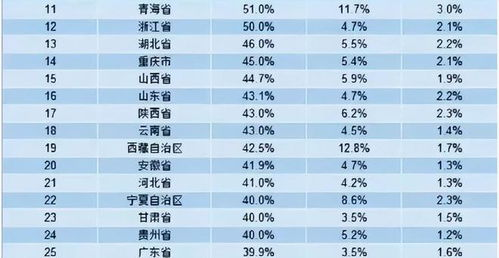Introduction to High Schools

The education system features different stages, and the transition from middle school to high school is a significant one. This article will help you understand "高中有哪些学校," meaning "What high schools are there," along with the various types of schools and their special characteristics. With this comprehensive guide, we aim to provide the necessary information about high schools to make an informed decision.
High schools, known as "高中" in Chinese, offer diverse environments and strengths. Whether you are seeking top academic programs, specialized disciplines, or extracurricular opportunities, the best fit depends on your specific preferences and needs. In the following sections, we will explore various types of high schools, their distinct features, and what makes each of them unique.
Public High Schools
Public high schools made up an integral part of our education system. These schools, funded and operated by the government, are accessible to a large population. They follow a standardized curriculum, ensuring students across the board receive a consistent quality of education. One of the primary advantages of attending a public high school is the breadth of resources available, such as advanced placement courses, sports, arts programs, and extracurricular activities. Public high schools often reflect the diversity of their communities, providing a rich social and cultural environment.
Public high schools are found in almost every locality, making them easily accessible for students. Although they follow a general curriculum, many have specialized programs to cater to students with different interests and talents, like science and technology tracks, liberal arts, and performing arts. This variety allows students to explore different fields and prepare for their future academic and career pursuits. Additionally, public schools utilize a transparent admission process, often based on catchment areas or academic performance.
Private High Schools
Private high schools offer an alternative to public education, often with a focus on specialized curricula or unique educational philosophies. These schools are independently funded, allowing them to create tailored programs that meet specific educational goals. Private schools can be categorized into various types, including religious schools, Montessori schools, Waldorf schools, and college preparatory schools, each providing distinct educational experiences.
One notable feature of private high schools is their lower student-to-teacher ratio, enabling personalized attention and a more interactive learning environment. Many private schools emphasize comprehensive development, including leadership programs, community service, and global education initiatives. These aspects aim to cultivate well-rounded individuals ready to face the challenges of higher education and life beyond.
Admissions to private high schools typically involve a more selective process, sometimes requiring entrance exams, interviews, and recommendations. While the cost of attending a private school can be higher due to tuition fees, many institutions offer scholarships and financial aid to make education accessible to a broader audience. The investment in private education is often perceived as an investment in the future, given the quality of education and opportunities provided.
Specialized High Schools
Specialized high schools cater to students with specific talents or interests in particular fields, such as science, technology, engineering, arts, or athletics. These schools provide advanced instruction and resources in their areas of specialization, nurturing students' skills and passions. Famous examples include STEM schools, arts high schools, and sports academies. These institutions aim to develop students' talents to their fullest potential.
STEM high schools focus on science, technology, engineering, and mathematics, offering rigorous coursework and opportunities for research and innovation. Arts high schools, on the other hand, emphasize performing arts, visual arts, and music, providing students with practical experiences and platforms to showcase their talent. Sports academies combine athletic training with academic education, preparing students for professional sports careers or disciplines related to sports sciences.
Admissions to specialized high schools are usually competitive, with a selection process that may involve auditions, portfolio reviews, academic assessments, or athletic trials. These schools offer unique environments where students can immerse themselves in their areas of interest while continuing their general education. The specialized training and focus prepare students for higher education or careers directly related to their talents or interests.
Q&A Section
Q: What factors should I consider when choosing a high school?
A: Consider the school’s curriculum, extracurricular offerings, special programs, teaching quality, student-to-teacher ratio, location, diversity, and tuition costs.
Q: Are public high schools better than private high schools?
A: Neither is inherently better; it depends on individual needs and values. Public schools are accessible and diverse, while private schools offer specialized curricula and personalized attention.
Q: How can I apply to a specialized high school?
A: Admissions typically involve a selective process such as auditions, portfolio reviews, entrance exams, or athletic trials. Research specific schools for their admission requirements.
Q: Are scholarships available at private high schools?
A: Yes, many private schools offer scholarships and financial aid to support students from various financial backgrounds.
Q: Can I switch between different types of high schools?
A: Yes, but it depends on the policies of the schools involved. Transferring between schools may require meeting each school's academic and administrative requirements.









